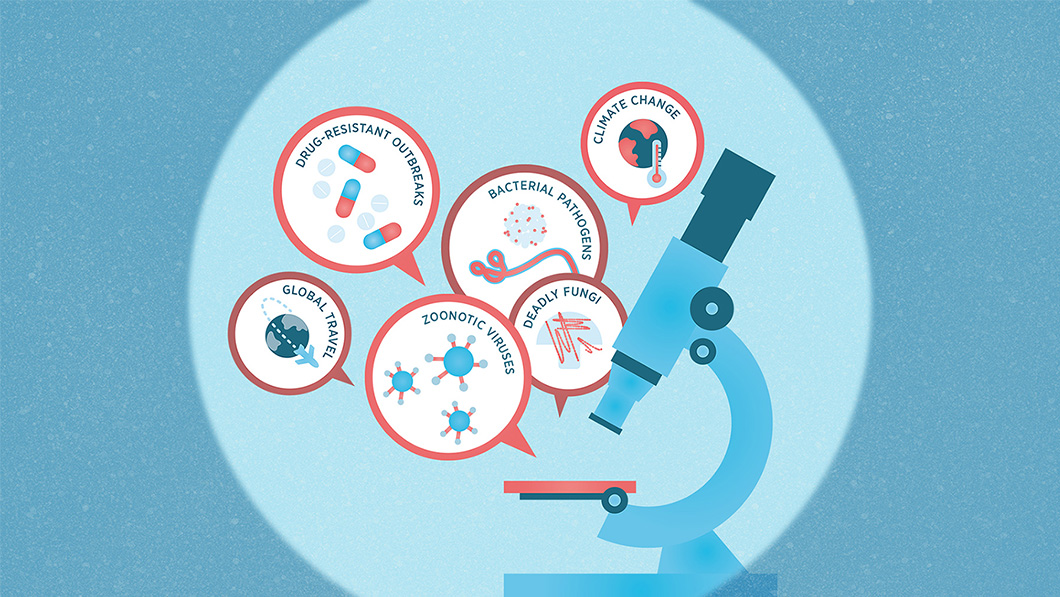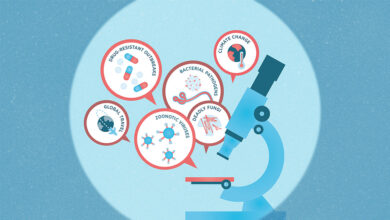
BARDA budget watch and Japan’s own CDC
Sponsored by:

PPF: Health Security
PPF’s report The Next One: Preparing Canada for another health emergency outlines the lessons learned from the pandemic and how Canada can safeguard against future health emergencies. To keep the discussion going — and to keep Canadians informed — this newsletter looks at what’s happening in the world of health security each week. Here’s what we’re following:
BARDA budget watch
Health security experts will be closely scanning Tuesday’s federal budget for any reference to the possible creation of a BARDA-like institution in Canada. BARDA, which stands for Biomedical Advanced Research and Development Authority, is the American agency tasked with creating health security strategic plans and public reporting on the state of the U.S. health security system.
One of BARDA’s current focuses is on advanced research and development, looking at phase one clinical trials for pharmaceuticals coming out of the preclinical development phase. The U.K. has launched a similar agency, the Advanced Research and Invention Agency (ARIA).
PPF’s The Next One report, published last year, recommended the creation of a Canadian BARDA, “fueled by reliable and immediately available federal funding.”
Such an agency, said the report, “must be given a mandate to detect and respond to health emergencies, ensuring diagnostics, medicines, vaccines and other medical countermeasures are rapidly developed, manufactured or acquired through innovative procurement practices. It should focus on assessing threats, supporting research and innovation, addressing market changes and considering industrial capacity and global supply chains. However, it must also engage with and acknowledge the central role of provinces and territories in running health systems, distributing drugs, therapeutics and medical devices, and making purchasing decisions.”
U.S. health hacks
Hackers continue to target vulnerable health systems with alarming frequency. Group Health Cooperative of South Central Wisconsin (GHC-SCW), a non-profit health-care service provider (and one of the largest in the state), said that a foreign ransomware group infiltrated its network in January and stole documents containing information on over 500,000 people. The information obtained by the hackers included things like people’s names, addresses, phone numbers, email addresses, birth dates, social security numbers and other personal data. For now, GHC-SCW says it has “no indication that information has been used or further disclosed.”
Earlier this month, City of Hope, a cancer research and treatment group operating five cancer centres across the U.S., announced that its systems were breached back in October, 2023. According to a notification submitted to the Maine attorney general’s office, the personal information of 827,149 individuals was impacted. City of Hope has said it will provide identity monitoring services to everyone impacted for two years at no cost.
Meanwhile, a new hacker group — which calls itself Ransomhub — claimed this week that it has now gained access to the stash of data stolen from UnitedHealth earlier this year. Ransomhub told Reuters that someone affiliated with the original group that stole the information, Blackcat, gave it the information “after a botched ransomware payment allowed Blackcat’s hackers to vanish with $22 million in bitcoin.” However, Reuters noted, “with little evidence to go on it is not clear whether they are telling the truth.”
Monumental data tracking
Hackers aren’t the only worry around health data. The U.S. Federal Trade Commission has taken action against a New York-based alcohol addiction treatment service that, according to a complaint from the U.S. Department of Justice, was sharing sensitive health information with third parties, including Meta and Google. The FTC has banned Monument from disclosing health information for advertising and is requiring it to get user consent before sharing health information with third parties for any purpose.
In its complaint, the Justice department said that between 2020 and 2022, Monument claimed on its website and elsewhere that people’s personal information would be “100% confidential” — and that it wouldn’t disclose data to third parties without consent. But, according to the complaint, Monument did the opposite, allegedly disclosing personal information — including health information — to “numerous” third-party advertising platforms.
Monument is said to have used the information to target ads for its services to both current and target users. The complaint also claims that even though Monument said it complied with the Health Insurance Portability and Accountability Act (HIPAA), an outside assessor found it was not in full compliance. The FTC says that Monument disclosed the personal data of as many as 84,000 people.
Japan’s new ‘CDC’
Japan’s national health minister has announced that it will establish the Japan Institute for Health Security (NIHS), a new expert body that will help the country prepare for future infectious disease crises. The Institute will be stood up a year from now, in April 2025, and will be modelled after the U.S.’s CDC. The Institute will combine the disease analysis, research and monitoring of its existing National Institute of Infectious Diseases and the treatment, clinical research and international cooperation currently handled by the National Center for Global Health and Medicine. By combining the two entities, Japan hopes the new NIHS will have the ability to comprehensively respond to emerging issues, from data collection to decisions around isolation periods and medical treatments.
Meanwhile, experts are still struggling to understand why a deadly form of group A streptococcal disease has surged in Japan in recent months. “It is becoming a serious problem, but there are still many things that we do not know,” Kazuhiro Tateda, president of the Japan Association for Infectious Diseases, told The South China Morning Post.“We know that it is a variant of the strain that was spreading in the U.K., but we do not know how or when it came to Japan.”
Radiology A.I.d
German health-care company Bayer and Google Cloud announced they are collaborating on a new AI-powered platform for radiologists. The new platform will use Google Cloud’s technology, including generative AI tools, to help radiologists diagnose patients by flagging anomalies in images and retrieving relevant patient medical history. One example the CEO of Google Cloud gave CNBC was that the program could detect current issues in a patient having an annual breast cancer screening, compare current images to previous ones, and summarize its findings.
Recent studies in Sweden and Denmark have shown the potential for AI to improve existing breast cancer screening by both improving detection and reducing false positives. But, as the New York Times reported this past week, it remains unclear whether AI analysis “will reduce deaths from breast cancer, or simply inflate survival numbers by finding more cancers earlier.” There also remains an open question about how AI’s success in Scandinavia might translate to areas with more diverse populations.
Read up on inspiring uses of AI in health care in PPF’s recent report, Unlocking Health Care: How to Free the Flow of Life-Saving Health Data in Canada.
U.S. measles jump
New data from the CDC released Thursday reportedly shows that measles cases have nearly doubled in the last two weeks. Whereas near the end of March, the CDC reported 64 cases nationwide, the latest count as of April 11 is 121 cases. The CDC also revealed that there have been 338 total cases reported between January 2020 and March 28, 2024, meaning that nearly a third of those have occurred during the first quarter of this year, and nearly all of those in people who were unvaccinated or whose vaccination status was unknown.
The CDC also showed the distribution of cases, with nearly half (47 percent) striking children under the age of five years. But just over a third of all cases this year (31 percent) have been in people aged 20 or over. Overall, 56 percent of cases have led to hospitalization or isolation to manage complications. Children have been more likely to need hospitalization — 65 percent of all recorded cases in children under five. But again, older people have not escaped without challenges. More than half of cases (57 percent) in people over the age of 20 have also needed hospitalization or isolation due to complications.
Events
April
- April 17-18: CMO Summit 360. Boston, MA.
- April 23-24: Public Health 2024. Halifax, NS.
- April 23-29: Intergovernmental Negotiating Committee(4th session). Ottawa, ON.
- April 29: Stat in DC: Policy in Health Care. Washington, DC.
May
- May 6-7: International Conference on Vector-Borne Diseases, Public Health Resilience and Individual. Ottawa, ON.
- May 6-9: The Global Synthetic Biology Conference. San Jose, CA.
- May 12-14: Bio€quity Europe. San Sebastián, Spain.
- May 13-16: AAPS 2024 National Biotechnology Conference. San Francisco, CA.
- May 13-17: PEGS Boston. Boston, MA
- May 16: US Pharma and Biotech Summit. NYC, NY
- May 16: STAT Breakthrough Summit West. San Francisco, CA.
Did someone forward you this newsletter? Subscribe to PPF: Health Security newsletter
This newsletter is produced by journalists at PPF Media. It maintains complete editorial independence.



